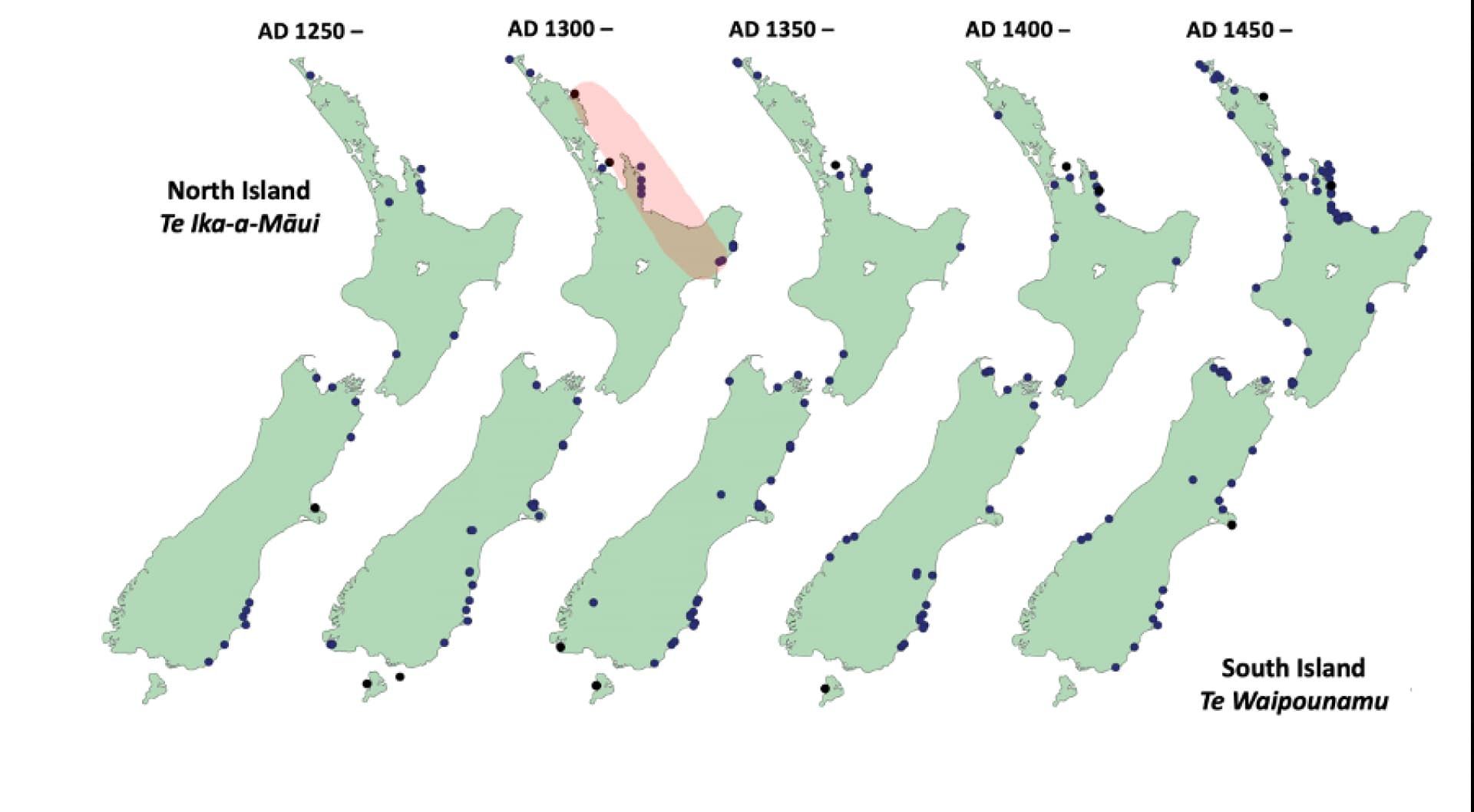Media Releases
New dates for Māori settlement of Aotearoa (New Zealand)

New archaeological research has provided a much more precise timeline for Māori settlement of Aotearoa (New Zealand) - with human settlement taking place as early as the mid-13th century.
Dr Magdalena Bunbury from James Cook University led the study that used radiocarbon dating of 436 archaeological sites in the North Island and 145 sites in the South Island. She said advances in the field have enabled scientists to firm up the date of New Zealand’s first settlement.
“For decades, the initial human settlement of New Zealand has been estimated to have occurred between the twelfth and fourteenth centuries.
“This study has narrowed that down and shown that early Māori settlement happened in the North Island between AD 1250 and AD 1275,” said Dr Bunbury.
She said the South Island was reached just a decade later between AD 1280-1295, when the hunting of the giant flightless moa bird commenced, and the human population rapidly grew.
But when the bird was hunted to extinction and a period of unstable cooler weather known as the ‘Little Ice Age’ began, the South Island’s Māori population came under pressure.
“Population growth in the South Island appears to have levelled off around AD 1340 and declined between AD 1380 and 1420 with the onset of the Little Ice Age and the extinction of the moa. The population continued to grow in the north, where conditions for agriculture were optimal,” said Dr Bunbury.
The first European settlers did not arrive in New Zealand until the 1840s.
Dr Bunbury said the study shows for the first time a measurable difference in the initial human settlements of the north and south islands of New Zealand.
“The results demonstrate connections between climate, resources, and population and will help us understand how human populations developed in other island nations.”
Dr Magdalena Bunbury
E: magdalena.bunbury@jcu.edu.au